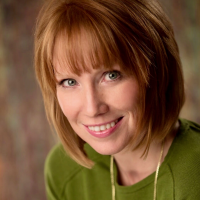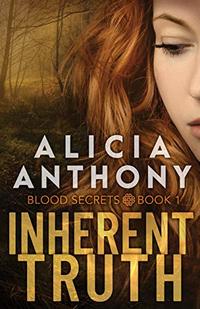Alicia Anthony Interview Published on: 11, Dec 2019
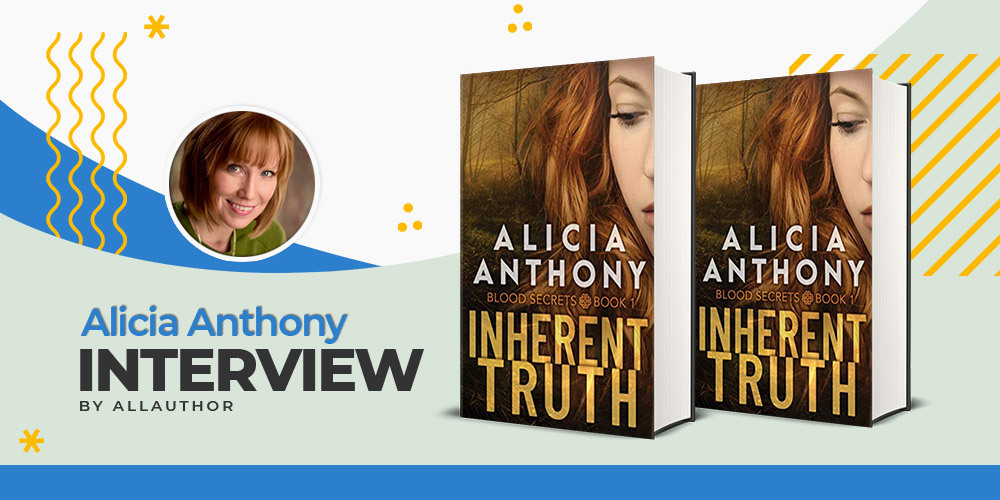 How did you begin scribbling on the back of your truck driver father’s logbook trip tickets?
How did you begin scribbling on the back of your truck driver father’s logbook trip tickets?
At my house, once my dad was finished with a trip, his logbook records became perfect scrap paper. Of course, this was well before everything was computerized and to be honest, I’m not sure how long he kept them before they made their way to the scrap bin. They were blank on one side and on the other, full of rows of black and white data blocks where I could pretend to be someone I’m not…a banker, an office worker, anything but the young child I actually was. Regardless, my mother always got them out when I wanted to draw a picture or write a story. And unbeknownst to me, she kept a few over the years.
What do you love the most about psychological suspense?I love not knowing. I love the idea of puzzling together a resolution through a character’s eyes, even if that character might be somewhat unreliable or have life events that jade his or her experiences. In some ways, I think it’s most like real life. We all go about our daily rituals never fully aware of what others are thinking or feeling. We take conversations at face value even when we are unsure what motivates the people around us or what circumstances they are facing. In other words, we never have all the information and I like exploring those intimate pieces of the human psyche that we, as humans, tend to hide from each other. I think pulling elements of psychological fiction into my novels is great a way to do that.
What inspired a full-time elementary school Literacy Specialist to begin writing her own stories?I’ve never been one to settle easily. I love reading and was enthralled by the way an author can make a reader laugh, cry, take notice of the world around them, all within the confines of one story, and I wanted to learn how to do that. I’d been teaching about seven years when I decided to dive in and enroll in a Master of Fine Arts program for Creative Writing. I enjoy the process of learning and have always felt drawn to that inexplicable “something more,” so I searched for a way to explore that facet of my life. Once I had that first residency under my belt, I was hooked. I knew, without a doubt, that this experiment in learning would become a huge part of my life. And it has. I’m lucky I’m able to tie the two careers together so seamlessly and offer my students an opportunity to learn more about the creative process within the scope of my day job.
In what ways do you wish to pass on your passion for books and writing to the students you teach? Have your students read your first book?The past few years I ran a voluntary National Novel Writing Month program for the fourth and fifth graders at my school. Unfortunately, due to some shifts in scheduling at school, I wasn’t able to do that this year. But I do hope to find a way to bring it back in the future. But that program was great in enabling students to think about writing as more than something they have to do, and view it as an opportunity to explore, learn, and grow in a safe space without the fear of being wrong. As for my first book, the answer is a resounding, “No.” I don’t write middle grade fiction and my novel is definitely not age appropriate for the students I teach. But maybe someday, when they’re older, they’ll pick it up and remember how I showed them how fun writing could be.
Which is your most cherished memory from the days you spent in Spalding University’s School of Creative & Professional Writing?This is so difficult. I was a part of their low-residency program, which meant we went on 10-12 day residencies, either to campus in Louisville, Kentucky, or (more often than not for me) overseas. My first residency was in Paris and it was when I first met one of my closest friends from the program. We spent our time outside of class hanging out in cafes and sightseeing. It was truly an amazing adventure. The moment I remember most, though, was during our Ireland residency. We’d been there one night when I got a call from the front desk in our hotel that my friend had been injured. I spent the remainder of that morning and into the afternoon with her at the emergency room. She could have called it quits. Gone home and no one would have batted an eye, but she didn’t. She stuck it out the whole rest of the trip and was an amazing travel companion. I’m not sure I could have done that, but she showed me true persistence during that trip, and that’s something I’ll always remember. Oh, yeah…and we wrote…a lot.
Have you ever considered penning down your travel experiences?I do keep a journal while I travel, but I don’t think it would necessarily make for good reading. More often than not, the entries are nuggets that stuck with me about the day. Experiences that impacted me in some way or a new bit of information I learned. Overall, I use my travels as inspiration. The sights, sounds, people, and places all play into the novels I’ve written, or plan to write in the near future.
How did you begin writing the "Blood Secrets" series? How many more books have you planned in the series?The series started in my living room, in front of the wood burning stove, as I worked to process the loss of a birthmother I never knew and the decline of a Grandmother who no longer knew me. It began as a cathartic women’s fiction project and took a left turn into thriller territory somewhere along the way. Currently, there are three books planned for the series. We’ll see where it goes from there.
How did you come up with the character of Liv Sullivan in "Inherent Truth"?Maybe I shouldn’t admit this, but of all the characters I’ve written so far, Liv is probably the most like me. She’s an observer, and a peacemaker. She feels a bit out of place among the people in her life and by giving her psychic ability I was able to physically encapsulate that feeling of being an outsider, although we certainly don’t need an extrasensory ability to feel that way, do we?
What’s the most difficult thing about writing characters from the opposite sex? How do you select the names of your characters?I wasn’t much of a girlie-girl as a child and I’ve always been a natural observer, so I think that helps when writing characters who differ from me in some way, whether gender or otherwise. I try to pull in characteristics I’ve seen or events I’ve witnessed to add realism to a character. Names are a different story. Best case scenario, they come, they stick and there’s never any question what that character’s name is. This was definitely the case for Liv in the Blood Secrets books. Other times I research. Ridge was a product of that. I wanted a name that brought to mind hard-edged beauty, and I think I managed that in Ridge’s name. I’ll also research for cultural names, for example some of the Irish names in my books were chosen because of their popularity or meaning within a specific geographical area. I actually love researching names, but it’s bliss when they just appear in my mind and stick.
Was writing and publishing something you always actively pursued? Who were some major influences in your early life?Not always. I’ve always written, always enjoyed the process, whether it was writing in a journal, a letter to a friend, or a paper for school. But I never seriously contemplated writing a full novel until about ten years ago. As far as early influencers, I was a big Black Stallion fan, so Walter Farley would rank up there, along with Anna Sewell. I’d read anything with a horse on the cover for a while. I read Nancy Drew like they were going out of style. I was an only child with a big imagination, so reading eventually turned into a passion for acting, which I actively pursued for a while. Maybe writing was just the natural progression from there.
How do you feel about the shift of reading from physical books to digital ones?I will say that I’m encouraged by the fact that young people (teens particularly) prefer physical books to digital ones. While there is convenience in ebooks, there’s nothing quite like that new book smell, or holding it in your hands. In fact, there’s reading research that indicates students learn better and retain more information when they use physical books. So, while I read both digital versions and physical books, I prefer physical. And I’m secretly hoping it will make a comeback as current teens become adults. Time will tell.
Have you ever considered leaving your day job to write full-time? Would you consider doing it in the future?Definitely. I love the kids I work with and would miss them, so I know I’d need to find an outlet to retain some of that. I’ve been toying with the idea of implementing a kids’ writing workshop in my community, something of that nature, so that I don’t lose that part of my life entirely. But, without getting too political, early retirement is most definitely the goal.
What are some of your upcoming projects? What can your readers expect from your next book featuring a family of swans?Hmm…probably not a family of swans. LOL Actually, the second book in the Blood Secrets Saga, Inherent Lies will release in March and is currently available for pre-order. The third is slated for some time in late spring. I also have a standalone thriller coming later in 2020 that explores the relationship between a teenage girl and her teacher as they struggle against the ramifications of forced prostitution amidst the opioid epidemic. I’m very excited about that particular project.
How has your experience with AllAuthor been?My experience with AllAuthor has been fantastic. It’s great to get the extra plug here and there and I enjoy the tools they offer as far as creating easy review videos and mock-ups to use for social media. It takes some of the load off my shoulders so I can do what I really want to do…write!
Share Alicia Anthony's interview
For the one who has always been a natural observer, writing interesting and engaging characters comes more creatively. Author of the "Blood Secrets" series, Alicia Anthony has always written, always enjoyed the process, whether it was writing in a journal, a letter to a friend, or a paper for school. Currently, she is working on a standalone thriller that explores the relationship between a teenage girl and her teacher.
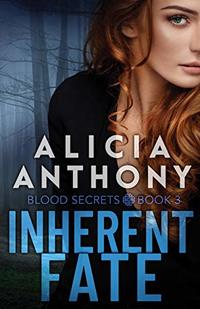 Inherent Fate (Blood Secrets Book 3)
Genre: Thriller, Suspense, Romantic Suspense, Paranormal Romance
Inherent Fate (Blood Secrets Book 3)
Genre: Thriller, Suspense, Romantic Suspense, Paranormal Romance
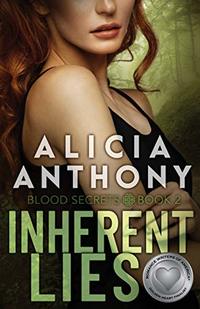 Inherent Lies (Blood Secrets Book 2)
Genre: Thriller, Suspense, Supernatural Suspense, Romantic Suspense, Paranormal Romance, Women's Fiction
Inherent Lies (Blood Secrets Book 2)
Genre: Thriller, Suspense, Supernatural Suspense, Romantic Suspense, Paranormal Romance, Women's Fiction
